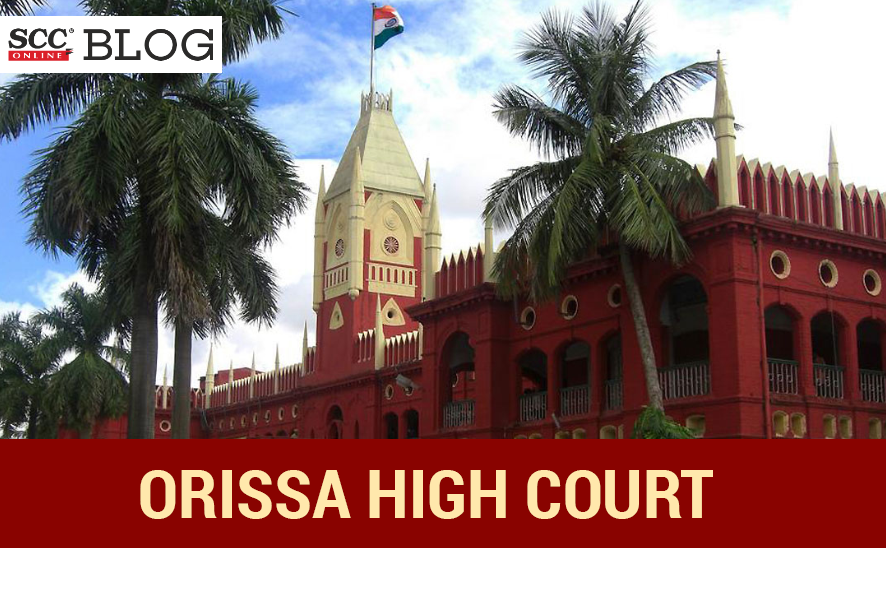Orissa High Court:In a petition filed to direct the respondents/State to immediately issue instruction to remove/delete the intimate video of the victim from all Social Media Platforms to those who are making the said scene available on their platforms for the viewers, and to instruct the Police to expedite investigation so as to take action against the miscreants/criminals in accordance with law,the bench of Dr. S.K. Panigrahi, J. has directed the State to take steps to remove the intimate video of the victim from all social media platforms within 2 weeks.
The petitioner (victim) was 17-year-old, studying in Allen Carrier Institute, Bhubaneshwar. While studying, the victim came in contact with a boyand spent an intimate moment with him, which was captured by a friend, to blackmail the victim. The video of the said intimate moment was uploaded by the accused on different social media platforms, which was viewed by millions of users.
The Court after examining the records, said that prima facie, it appears that the accused has uploaded the said photos/videos on a social medial platform i.e., YouTube and with the intervention of the Police, after some days it was to be deleted from YouTube, but in fact, the information is in the public domain. The Court further remarked that the information in public domain is like toothpaste, once it is out of the tube one can’t get it back in and once the information is in the public domain it will never go away.
The Court said that under the Indian Criminal Justice system, a strong penal action is prescribed against the accused for such heinous crime but there is no mechanism available with respect to the right of the victim to get the objectionable photographs/video deleted from the social media .The different types of harassment, threats and assaults that frighten citizens in regard to their online presence pose serious concerns for citizens. There is an unprecedented escalation of such insensitive behavior on the social media platforms and the victim could not get those videos deleted permanently from server of such social media platforms.
The Court said that, presently there is no statute in India which provides for the right to be forgotten/getting the photos erased from the server of the social medial platforms permanently.
The Court while taking note of the European Union’s General Data Protection Regulation which would which governs the manner in which personal data can be collected, processed and erased, said that every single time, it cannot be expected that the victim shall approach the Court to get the inaccurate data or information erased which is within the control of data controllers such as Facebook or Twitter or any other social media platform.
Further, it was highlighted that there is no statue which recognises right to be forgotten but it is in sync with the right to privacy, which was hailed by the Supreme Court as an integral part of Article 21 , but on the recommendation of B. N. Srikrishna Committee, the Ministry of Law and Justice included the “Right to be forgotten” as a statutory right in Personal Data Protection Bill, 2019, which is yet to be implemented.
The Court also said that the Information Technology (Reasonable Security Practices and Procedures and Sensitive Personal Data or Information) Rules, 2011, India’s first legal framework recognised the need to protect the privacy of personal data, but it failed to capture the issue of the “Right to be forgotten”.
Placing reliance on K.S. Puttaswamy v. Union of India, the Court said that the proposition of purpose limitation (that prevents one from using personal data for new purposes if they are ‘incompatible’ with the original purpose for collecting the data) is not applicable here, as the question of seeking consent does not arise at all. No person much less a woman would want to create and display gray shades of her character. It is their right to enforce the right to be forgotten as a right in rem. Thus, capturing the images and videos with consent of the woman cannot justify the misuse of such content once the relation between the victim and accused gets strained as it happened in the present case, If the right to be forgotten is not recognised in matters like the present one, any accused will surreptitiously outrage the modesty of the woman and misuse the same in the cyber space.
The Court noted that Section 27 of the draft Personal Data Protection Bill, 2018 contains the right to be forgotten. Further, Section 10 of the Bill provides that a data fiduciary shall retain personal data only as long as may be reasonably necessary to satisfy the purpose for which it is processed. Further, it imposes an obligation on every data fiduciary to undertake periodic reviews in order to determine whether it is necessary to retain the personal data in its possession. If it is not necessary for personal data to be retained by a data fiduciary, then such personal data must be deleted in a manner as may be specified.
Thus, the Court directedthe State to take steps to get the video removed from all social media platforms within 2 weeks.
The matter will next be taken up on 10-05-2023
Advocates who appeared in this case :
For Petitioner: Advocate M.R. Pradhan;
For Respondent: Advocate G.R. Mohapatra, (ASC).
Judgment authored by: Justice Dr. S.K. Panigrahi.






